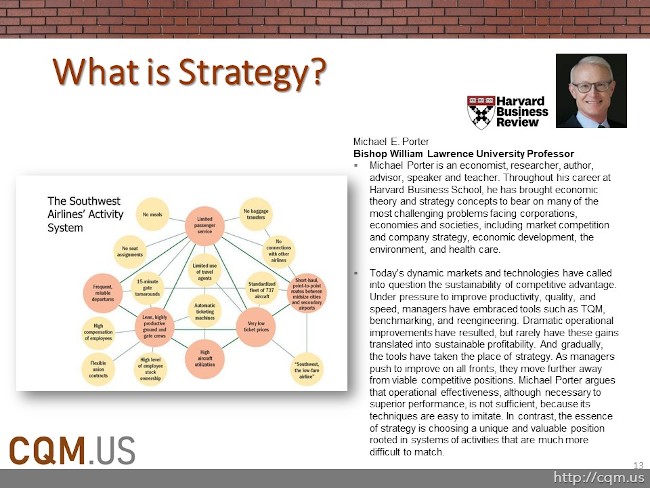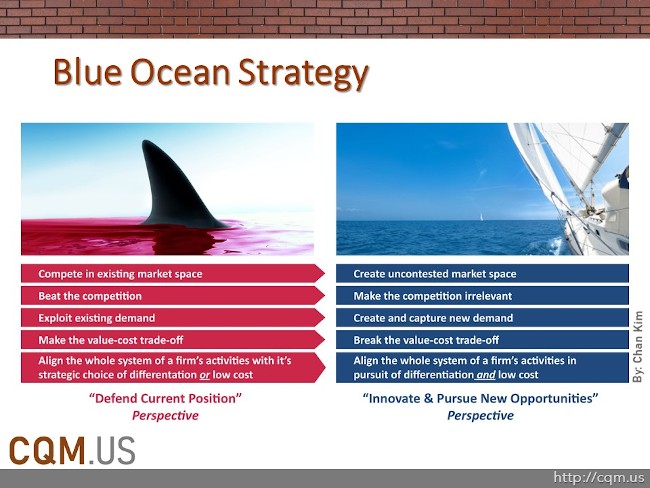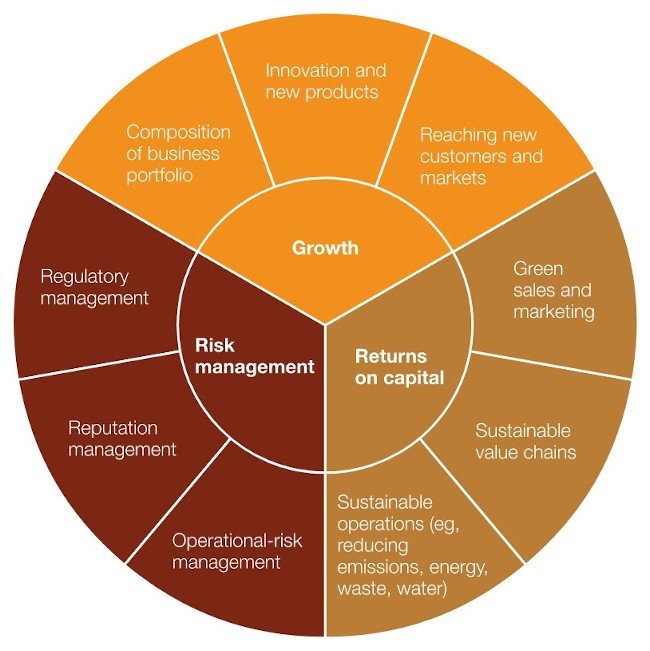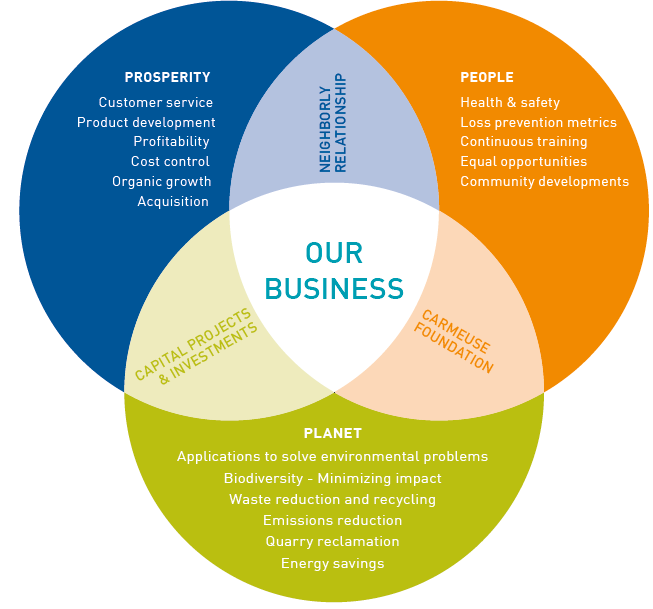A key to successful CQM Implementation is proper Business Management with Quality Excellence Mindset for Business Success and CQM Sustainability. Without the proper Top Management Support and Strategic Alignment, the CQM Implementation will face hardship or failure at lower levels. Therefore, an initial step of proper training and coaching starts with the top management’s commitment and initiative to make a cultural change and promote Quality Excellence Mindset in all aspects of the organization. Michael E. Porter’s article on “What is Strategy?” in Harvard Business Review is a great article for Top Managers and Organization Strategist to read.

In addition, a “Business of Engineering” crash course to better understand the Master’s of Business Administration MBA topics of running a successful business for Construction-Related organization is highly recommended. The process of implementing proper Change Management for better Business Management is as follows:
- Organizational Management & Structures
- Strategic Management & Stakeholder Management
- Portfolio, Program and Project Management
- Marketing & Financial Management
- Knowledge Management & Development
- Problem Solving & Decision Making
- Legal Aspects & Negotiations
- Optimization & Maturity
- Entrepreneurship & Sustainability
- Debugging & Why do Businesses Fail?
Although many aspects of the above program will be discussed with Quality Integration aspects of the discussion throughout the CQM Implementation, however the focus of the CQM Methodology is in the following areas:
- Strategic Alignment
- Enterprise Risk Assessment
- Organizational Maturity
- Problem Solving Process & Decision Making Flow
- Initiating Change through a Project Management Office
Strategic Alignment for Business Success
Strategic Planning is a method used for the self-evaluation of an organization to determine its course of action for the future. Without a proper Strategic Plan that is based on clear Mission & Vision Statements, Major Goals based on a SWOT Analysis, Business Objectives through KPA & KPIs, and Key Strategies that are based on Niche Market & Blue Strategy, business administration and management tactics will be just noise before defeat. A proper Benchmarking and Gap Analysis will determine the desired future state for a change management plan that is designed based on proper forecasting methods for the most innovative solutions to future business success obstacles.
Blue Ocean Strategy
Considering the Blue Ocean Strategy approach introduced by Chan Kim, the CQM Philosophy promotes competition in uncontested market spaces to break the value-cost trade-off to align the Construction Project Management System of the organization’s activities in pursuit of differentiation for higher value at a lower cost.

Introducing best practices and the newest innovative solutions to our CQM Community will make each of our organizations stronger in its own niche market as our construction community grows stronger together. We compete with each other and ourselves to be better than we were yesterday!
Business Sustainability
Business Success cannot be achieved without an eye for the future with consideration for Business Sustainability. Leadership in Energy and Environmental Design has many guidelines for Sustainability of Green Buildings and Communities. CQM Methodology recommends the same guidelines to achieve Business Sustainability through Integration of Quality Management in an Integrated Project Delivery Program to achieve the three-bottom lines of Prosperity, People, and Planet as profits are realized while committing to focus on social and environmental concerns. If a Business’s strategy is aligned with the sustainability mindset it will create long-term value and fosters company longevity. That’s how thinking of a Total Quality Management Integration with all aspects of Project Management and Business Administration will make sense and find strategic objectivity and justification.
According to a McKinsey Report, Sustainability activities will bring value to an organization in the following three areas: Growth, Return on Capital and better Risk Management.

CQM Sustainability
Considering the above facts and the importance of a Business Strategy based on Sustainability Mindset, CQM Sustainability is developed inline with CMAA Guideline for Sustainability. A CQM Manager finds his work meaningful in an integrated total quality management approach only if the top management is committed to sustainability. In order to keep the Quality of the Sustainability efforts inline and aligned with the Business Sustainability objectives a CQM Manager would track that the following is monitored and controlled:
- Designated Goals are being measured and controlled
- Assigned People are coordinated and in proper communication
- Allocated Resources are assigned properly and supervised through an audit program
- Continuous Improvement is being implemented through the Supply Chain

Per CMAA Guideline for Sustainability, like cost, schedule, quality, and safety; sustainability should be a significant goal of construction project management. This is achieved by strategies for integrating sustainability requirements in Construction Project Management by:
- Creating a Sustainability Plan
- Algin Commissioning Plan with the Sustainability Plan
- Include Sustainability Metrics into the Quality Management Plan
- Incorporate Sustainability Requirements in Contract administration procedures, Procurement, Project Procedures Manual and Safety Plans
- Use of PMIS as a tool to perform energy modeling, BIM, performance modeling, LEED credit tracking, post-construction maintenance plans to optimize energy efficiency maintenance practices and capital replacement decisions.
As a CQM Manager is implementing sustainability mindset to a construction project it will yield to healthful, durable, and environmentally and ecologically sound performance throughout the facility life cycle – from pre-design, planning, construction, post-construction and into the operation and maintenance stage. A CQM Manager responsibilities may include:
- Assist in setting goals and create CQM Sustainability Plan;
- Advise on budget implications of sustainability measures;
- Advise on schedule implications of sustainability measures;
- Advise on public acceptance matters;
- Assist with design consultant, sustainability consultant (or “green building facilitator”) and
- contractor selection;
- Assist in evaluating alternatives to achieve sustainability goals;
- Assist in providing verification of progress and achievement of sustainability objectives; and
- Assist in sustainability impact analyses, value engineering, and other studies to assure or verify the achievement of sustainability goals.
References: CMAA Standards of Practice; CMAA Quality Management Guideline